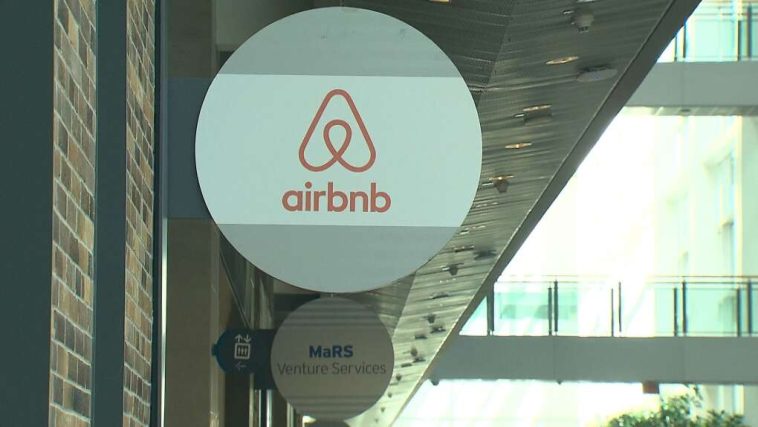Introduction,
Airbnb rental arbitrage is a way to profit from short-term rentals without actually owning property. It’s a creative way to get into the rental game and the best part? You don’t have to go all-in on real estate investment.
This strategy can allow people to take on leases for long-term rental properties, and then rent them out on Airbnb or other short-term platforms.
Airbnb rental arbitrage is appealing for its relatively low startup costs compared to buying a property, and it can offer a good income stream if done right.
With rising demand for short-term rentals and a steady influx of travellers and digital nomads, many people are curious about how to start.
But like any business model, rental arbitrage has its own challenges, legal considerations, and financial risks.
This guide covers everything you’ll need to consider, from costs to legalities to setting up your first Airbnb arbitrage rental.
What is Airbnb Rental Arbitrage?
Airbnb rental arbitrage is the process of leasing a property long-term and then subletting it on Airbnb or other short-term rental platforms for a profit. Here’s the general idea:
- Lease a property – You sign a traditional long-term lease for a property, whether it’s a house, apartment, or condo.
- Sublet on Airbnb – Instead of occupying it yourself, you list the property on Airbnb for short-term rentals.
- Profit from the difference – Ideally, the income from Airbnb bookings exceeds your monthly rent and expenses, leaving you with a profit.
For example, let’s say you’re paying $1,200 a month to lease an apartment. If you can book enough stays to generate $2,000 a month, you’ll cover your rent and expenses with a potential profit of $800.
Why Airbnb Rental Arbitrage?
Many people are drawn to Airbnb rental arbitrage because it allows them to earn rental income without the high costs of buying property. Here are some reasons why this strategy is popular:
- Lower Entry Costs: Unlike buying property, rental arbitrage doesn’t require a down payment or a mortgage.
- Higher Potential Returns: Short-term rentals often bring in more income per night than traditional long-term rentals.
- Scalability: Once you set up one property, it’s easier to replicate the model and scale by taking on additional leases.
How Can I Do Airbnb Rental Arbitrage?
1. Research Local Laws and Regulations.
Each city has its own rules and regulations on short-term rentals, especially for non-owner-occupied properties.
For instance, cities like New York, San Francisco, and Los Angeles have strict regulations on short-term rentals, while other areas may have more lenient laws. Make sure to:
- Check city and state rules about short-term rentals.
- Get information on any specific permits or licenses you may need.
- Be aware of occupancy tax requirements, which may impact your costs.
2. Find a Profitable Market.
The ideal market for rental arbitrage has high occupancy rates and solid demand from travelers. Factors to consider:
- Tourism demand: Cities that attract year-round tourists (e.g., Orlando, Las Vegas) tend to have a steady demand for Airbnb stays.
- Business travel: Cities that host a lot of conferences and corporate events can be lucrative.
- College towns and medical hubs: These areas often attract short-term visitors for work, conferences, or medical treatment.
3. Calculate Your Potential Profit Margins.
Rental arbitrage only works if your short-term rental income exceeds your monthly expenses. To ensure profitability:
- Estimate monthly revenue: Research similar Airbnb listings in your area to gauge potential earnings.
- Factor in occupancy rates: Expect an average of around 70% occupancy to account for slower months.
- Calculate expenses: Include rent, utilities, cleaning fees, Airbnb service fees (usually 3-5%), and any additional costs like Wi-Fi, cable, and maintenance.
4. Get Landlord Permission.
Since you don’t own the property, you’ll need the landlord’s approval to sublet. Some landlords may be wary of short-term rentals, so prepare a strong pitch that highlights benefits for them:
- Stable income: Explain that as an Airbnb host, you’re financially incentivized to keep up with rent payments.
- Property care: Reassure them that you’ll maintain the property and handle routine cleaning.
- Insurance: Offer to include landlord protections, like Airbnb’s Host Guarantee, to mitigate potential damage concerns.
5. Set Up and Furnish the Property.
Creating an appealing Airbnb listing requires thoughtful setup and furnishing. Aim for a comfortable, aesthetically pleasing space that attracts positive reviews. Essentials include:
- Comfortable bedding: Quality sheets, pillows, and beds are top priorities.
- Stylish decor: Decorate with local artwork or a theme that reflects the area’s vibe.
- Basic amenities: Stock the property with toiletries, a fully equipped kitchen, Wi-Fi, and entertainment options.
6. Optimize Your Listing and Price Strategically.
Your Airbnb listing is your primary marketing tool. Write a compelling description, use high-quality photos, and set a competitive price based on demand and seasonality. Use dynamic pricing tools like Beyond Pricing or PriceLabs, which adjust rates according to local trends.
Pros and Cons of Airbnb Rental Arbitrage
Pros
- Low Upfront Investment: Compared to buying property, startup costs are much lower.
- High-Profit Potential: With the right property, rental arbitrage can offer attractive returns.
- Scalability: Once you understand the model, you can replicate it and add more properties.
Cons
- Legal Restrictions: Some cities and landlords restrict or ban short-term rentals.
- Market Dependency: Profits are often seasonal and market-dependent.
- High Maintenance: More frequent turnover means cleaning, repairs, and guest communication.
FAQ
1. Is Airbnb rental arbitrage legal?
Yes, but legality varies by location. Some cities have restrictions on short-term rentals, particularly for non-owner-occupied units. Always check local laws before signing a lease with plans to sublet.
2. Do I need a lot of startup money?
Not as much as you’d need for a down payment on a property, but you’ll still need funds for the security deposit, first month’s rent, and furnishings. Budget around $3,000-$8,000 depending on the property size and market.
3. What if my landlord doesn’t allow subletting?
If the landlord doesn’t agree to subletting, it’s not worth risking your lease. Look for landlords who are more open to short-term rentals or consider properties in vacation-friendly areas where subletting is more accepted.
4. How do I handle cleaning and guest services?
You can hire a cleaning service for turnover between guests, and many Airbnb hosts use property management software to automate guest communication and key exchanges. Alternatively, some property management companies specialize in short-term rentals.
5. Is rental arbitrage risky?
Yes, it has risks, especially in uncertain markets or areas with tight regulations. However, many of these risks can be managed through careful planning, conservative budgeting, and ensuring legal compliance.
Conclusion
Airbnb rental arbitrage can be a viable way to make rental income without property ownership. With thoughtful planning, strong market research, and an eye on legalities, it’s possible to make this model work profitably.
However, rental arbitrage isn’t for everyone, and it requires a hands-on approach, especially in terms of managing guest expectations and keeping up with maintenance.
So, is Airbnb rental arbitrage a strategy you’d consider for your next business venture?





GIPHY App Key not set. Please check settings